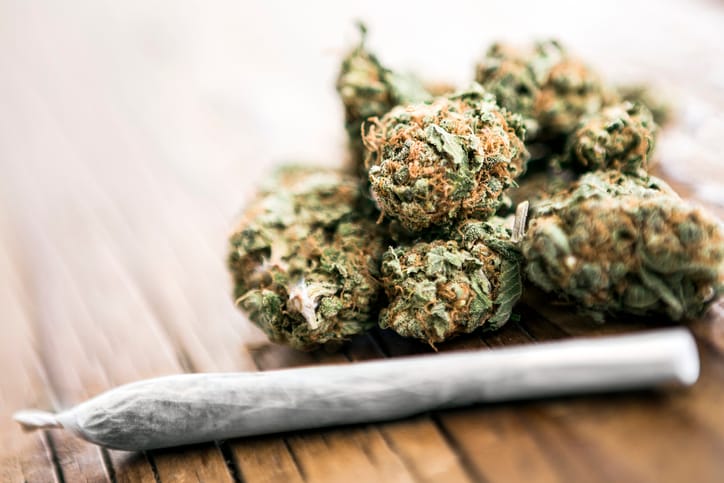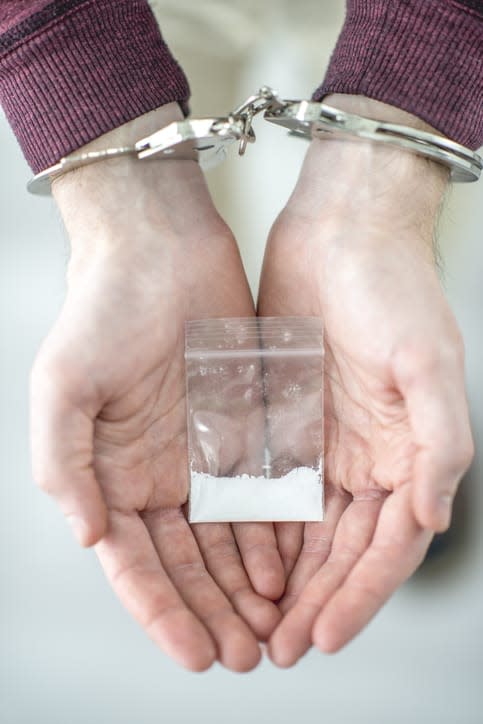
Back in January, the Chief Executives Board of the United Nations – a board comprising the heads of 31 UN agencies – quietly released a document summarising recent meeting “deliberations”. The meeting had covered a wide range of issues, including deliberations on the state of the world, updates on the recent Ebola outbreak in the Democratic Republic of Congo, and more.
Buried in the document was a single, groundbreaking sentence. The board had committed, among other things, to promoting “alternatives to conviction and punishment in appropriate cases, including the decriminalisation of drug possession for personal use”.
Human rights and drug user organisations around the world only picked up on the statement last month. The general consensus is that it’s a very big development in global drug policy. Although UN agencies have called for decriminalisation in the past, the recent policy statement now means that it’s the common position of the UN’s various agencies.
What is decriminalisation?
Decriminalisation involves the removal of criminal penalties for the specific offences of drug use or possession. The key feature of decriminalisation is that drug use remains illegal but doesn’t result in criminal penalties. People might instead be subject to small fines, or police guidelines might dictate that they should simply not enforce the law.
People charged with certain drug offences might also be offered “diversion” out of the criminal justice system and into alcohol or other drug treatment or counselling. Diversion is in operation in all states and territories of Australia. Legalisation is different to decriminalisation, in that it involves drug use and possession becoming legal.

Australia has a complex system of overlapping drug laws across the Commonwealth, states and territories. Our laws are underpinned by the National Drug Strategy 2017-2026, which is the national framework relating to tobacco, alcohol and other drugs.
The National Drug Strategy uses what we call a “three pillars approach” to drugs. It focuses on demand reduction, which are strategies designed to prevent, delay or minimise demand for tobacco, alcohol and other drugs; supply reduction, which are strategies designed to prevent or disrupt the production and supply of drugs; and harm reduction, which comprises a series of measures designed to reduce forms of harm (such as overdose death) that can be associated with substances.
In general terms, the use, possession and supply of certain substances such as cannabis, heroin, MDMA and cocaine are illegal in Australia. People found guilty of drug-related offences face varying criminal penalties, the nature of which differ depending on factors such as the type of substance concerned.
Those offences also vary significantly depending on the state or territory. For example, in Queensland, a person in possession of an illicit drug such as heroin might face up to 15 years in prison. In Western Australia, it’s two years. In three jurisdictions (South Australia, the Northern Territory and the Australian Capital Territory), use and possession of cannabis for personal use, in specific quantities, has been decriminalised. In these jurisdictions, civil penalties still apply. Offenders have the option of paying a penalty notice in the range of $100 to $300.
There’s a large body of research on decriminalisation. Research shows that decriminalisation reduces criminal justice system costs, does not increase crime and does not increase drug use. Research recently undertaken by colleagues and myself for the Queensland Mental Health Commission also showed that the criminalisation of drug use and possession can itself produce harms, including stigma and discrimination. A past criminal record for drug use or possession can reduce people’s chances of future employment, among other things. We therefore recommended that drug use be decriminalised.
Momentum is building for reform
There’s growing momentum for reform in Australia. Last year, a major Victorian parliamentary inquiry recommended exploring options for reform. This might involve adopting the much-heralded “Portuguese model” of decriminalisation. It remains unclear whether the Victorian Labor government will pursue reforms.
Last year, I also attended a landmark roundtable led by the think tank Australia 21, held in Parliament House in Melbourne. It included representatives from Uniting, Anglicare, the ACT Council of Social Services, the Noffs Foundation, Families and Friends for Drug Law Reform, the Penington Institute, the Alcohol and Drug Foundation, the ACU Institute of Child Protection Studies, the Australian Drug Law Reform Foundation, the Victorian Association for the Care and Resettlement of Offenders, participants with lived experience of drug use, and imprisonment and experts from a diverse range of fields. The roundtable resulted in a report and consensus statement, also calling for decriminalisation.
The public also supports reforms. The most recent findings from the National Drug Strategy Household Survey show that Australians support non-criminal actions for drugs. Conducted every two to three years, the most recent survey results suggest that support for certain reforms is growing, with 87 per cent of people supporting the use of cannabis in clinical trials to treat medical conditions, 85 per cent supporting a change in laws to permit the use of cannabis for medical purposes, 35 per cent supporting the legalisation of cannabis, and only 26 per cent believing that possession of cannabis should be a criminal offence.
There’s now an abundance of evidence for reform, and growing public and expert support for change.
Change of various kinds is happening across the world. Uruguay created a legal cannabis market in 2013, and Canada recently became the first G7 nation to legalise cannabis. Reforms are also spreading across the United States, sparking job growth, and leading to estimates that it may be an US$80 billion industry by 2030.
The recent UN Chief Executives Board statement is a significant moment in the history of global drug policy. But if it’s to be truly meaningful, the statement must be followed by action. There’s now an abundance of evidence for reform, and growing public and expert support for change.
Reform of drug law and policy is also said to be essential for the achievement of major international goals, including the UN’s Sustainable Development Goals, and the Australian government’s ambitious goal to eliminate hepatitis C by 2030. Both of these goals are undermined by ongoing criminalisation.
We’re now moving towards a federal election. Calls for change are gathering pace, in Australia and abroad. There are myriad reasons why change is needed, and needed now. The only legitimate questions for our politicians must now be: which reforms will you choose, and when you will begin to implement them?





